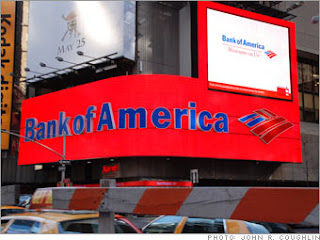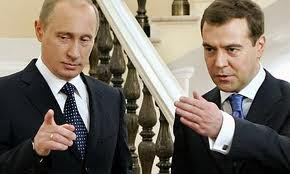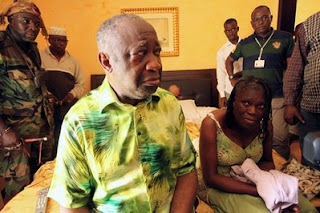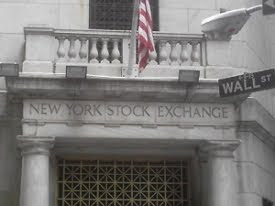Livermore Finds Work as a Chalk Boy
Jesse rolled in to town and as it so happens, he walks into the office of Pain Weber. Just looking around, he sees young men writing numbers across a chalk board while another set of men watched the boards and called out orders. This environment fascinated livermore and after asking a couple questions, he soon realized the numbers on the board were prices of stocks as they were being bought and sold on the stock market. One of the "chalk boys" as they were called then, was out sick and the manager of the place, asked a wandering livermore, if he thought he could fill in. The rest is history as they say! Livermore's love of numbers and fascination with the city life he was now experiencing, took the offer and wrote the stock market quotes of a company assigned to him, on the chalk board as another young man in the office, called out the stock quotes. Livermore was intrigued. He had a good sense for numbers and wrote the quotes so flawlessly, he was hired as a new Chalk boy for the office. The small salary was enough for him to rent a room a few blocks away from the Pain Weber office. Every morning, he would arrive to the office before everyone else. Sometime he waited outside at 6a.m. waiting for the others to arrive and open the office. He started reading multiple newspapers and developed a keen sense for what was happening in the stock market, in business, in the economy, in global trade, in finance, and many other subjects that gave him new and fresh perspectives on how the world operated. I have tried this approach, disciplining myself to read multiple newspapers every single day. I have done this for the past 8 years, and I want to say, IT WORKS! I see why this guy was so interested in newspapers now! One of the main and most important things I came to learn is that the news is distributed to the masses. This means people are getting the same general information. What is most important however, is how that information is interpreted! It takes time to learn, but if you're a newspaper reader and stock trader, I'm sure you know what I mean. Often stories and market activity appear at odds to the untrained eye.
Stock Market Repeating Patterns
Anyways, back to Livermore, Each day as he wrote the stock quotes on the board for the investors and spectators who would call out buy and sell orders when certain quotes were drawn, Livermore began to notice some repeated patterns. They included the patterns occurring in the the stock quotes he was writing on the chalk board. He began to notice and carefully observe the fluctuations in price movements. He watched how those price movements moved in conjunction with other stocks,or another company in the same industry. He watched the fluctuations occur as news events were reported in the office. He noticed there were patterns at those times too. The second and possibly most important observation that Jesse Livermore had was the reaction of the people themselves. From the other Chalk Boys, to the Manager of the office, to the men watching quotes, trying to decide whether to buy or sell stocks. They all reacted in predictable manners when certain events occurred. He noticed for example that when stock prices pulled back after a strong rise, men in the office would rush to sell their positions not wanting to lose their profits. As they sold, the price of a stock went down a little more but then start to rise again. He would watch the frenzy like excitement in the office as those same investors who just sold a stock, now jumped back in with excitement as it rose. Livermore noticed that emotions were high and seemed to guide investors decisions not only in that office, but surely around the country. He calculated that human emotion collectively could be predicted to have certain impacts on the prices of stocks. If bad news came out, investors quickly sold a stock, only to often watch it rise past the level they sold it at a few weeks later. He would watch the bewilderment and even the confusion the men exhibited in the office as they reacted to stock price fluctuations. in the market when certain conditions were met. He would go on to explain in his later years that his desire to work alone and trade his own account, was so he could focus on his own ideas, thoughts, emotions, without the distraction of investors who were excited, nervous, and the various other emotions the stock market can invoke in traders. The exhilaration that comes from testing your ideas on the market is amazing. Being right as a result of your work and trading execution, is a very rewarding feeling. The ability to repeat it with high probability, is even more rewarding.
A Numbers Game Becomes Profitable
Jesse began keeping a notebook that he carried with him. It was filled with stock quotes that he had seen or written earlier in the day. When he arrived to his room after a days work, he carefully went over his notebook, studying the patterns that he had seen in the office. He began making trades in his notebook that weren't real, but practice to put his intuition and theory of patterns to the test. Surely he thought, if the market had patterns just like he observed, than its movements could be predicted with good accuracy for the specialist trained to see such a thing. As the story goes, Livermore would use his experience and knowledge on movements, and make fortunes in the stock market with that knowledge. A self made, self taught, man whose life went from poverty stricken, to one of the wealthiest in the country in his day. He worked from a numerical basis only, saying charts were confusing and misleading. I had no idea what that meant until I forcefully trained myself (painfully in the beginning) to watch stock prices not on charts but only on time stamps that show a buy or sale, the share amount, the company, and the time the transaction was made. From an online broker, this is an option in your screen that you watch stock prices from. It's called Time Stamp or something to that effect. What you realize is the chart is an after shot. Whats on the printed time stamp list is real trades, letting you get a better sense of what directions stocks are going and how powerful that direction is. Charts show that after its already happened. I see why charts can be confusing! I use them but as a secondary measure, Watching actual trades on a list is much easier, and much more revealing! Another reason I like this Livermore guy! He got me off using mostly charts, and taught me how to see and interpret where the real action is! I prefer following stock prices on a numerical base now.









































